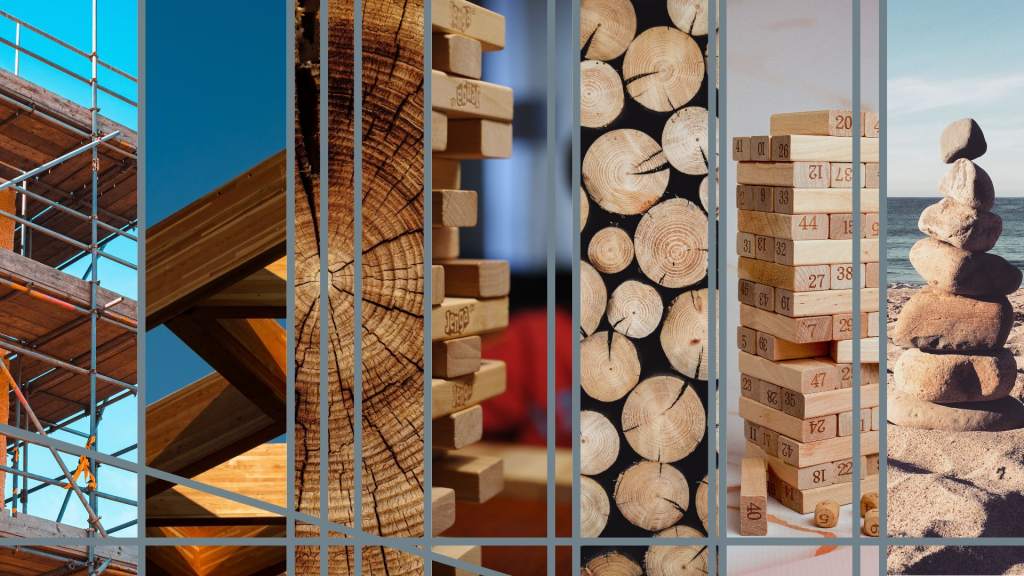 Share this!
Share this!On 6 December, the day before the AER Bureau, the AER Working Group on the Bioeconomy is organising a workshop on “The Bioeconomy & the New European Bauhaus“, which will look at bio-based innovation in the construction sector.
Bio-based innovation: a catalyst for change
The bio-based sector or bioeconomy, is a catalyst for systemic change. Indeed it opens new ways of producing and consuming resources while respecting our planetary boundaries. It contributes therefore directly to achieving the economic, social and environmental goals of the European Union’s Green Deal.
Massive impact in the construction sector
The construction sector has a considerable environmental impact, during the whole life cycle of buildings (construction, use, demolition) as well as the life cycle of construction materials.
In this context, bio-sourced construction materials, if managed in a sustainable way during their whole life cycle, have a major role in the decarbonisation of the construction sector. The development of technological innovation, value chains and skills ecosystems require however intense collaboration across sectors.
Creativity, sustainability, inclusion: it’s possible!
The New European Bauhaus is a creative and interdisciplinary EU initiative that connects the European Green Deal to our living spaces and experiences.
The New European Bauhaus was launched by President von der Leyen in September 2021. It adds a cultural dimension to the Green Deal and accelerates the green transition with change on the ground that combines the values of aesthetics, sustainability, and inclusion.
Mutual learning to accelerate the development of the bioeconomy
The ambition of the AER Working Group on the Bioeconomy is to create a community amongst European regions to share challenges and opportunities. The activities organised by the working group are also laying the ground for future partnerships and projects.
The workshop “The Bioeconomy & the New European Bauhaus” will therefore look at:
- European strategies supporting the decarbonisation of the construction sector
- Societal challenges, the territorial approach
- Technical innovations in bio-based materials, which are being explored and implemented in the regions
- The state of play in the regions.
The programme of this workshop is available on the event webpage. As places are limited, registrations will be taken on a first-come first-served basis.
Share your experience!
It is still possible to propose policies and practices you are proud of in your region to be presented at the workshop on 6 December. Your experience matters and is interesting for other regions: this is what the mutual learning community is all about! If you would like to share your region’s experience in the decarbonisation of the construction sector via bio-based innovation, please get in touch with AER Coordinator for Policy & Knowledge Transfer Johanna Pacevicius.
More information on this topic
- Activities of the AER Working Group on the Bioeconomy
- Interview of Aud Hove, Chair of the AER Working Group on the Bioeconomy
- How the bioeconomy contributes to the European Green Deal
- European Strategy on the Bioeconomy
- Knowledge Centre for Bioeconomy
- Bioeconomy & EU financing instruments
- Funding opportunities under the New European Bauhaus
About the AER Working Group on the Bioeconomy
The working group on the bioeconomy and skills was set up in Spring 2022, based on a proposal by Innlandet (NO), supported by Lower Austria (AU), Gelderland (NL) and Värmland (SE). Aud Hove, Deputy Mayor of Innlandet (NO), currently chairs the working group that gathers representatives from Värmland (SE), Gelderland (NL), Fribourg (CH), Donegal (IE), Udaras na Gaeltachta (IE), Adana (TR), Eastern Slovenia (SI), Grand Est (FR), Dolj (RO), Tirana (AL), Valencia (ES), West Slovenia (SI), Umbria (IT).
The working group is open to all AER members. If you are interested in collaborating with this working group, please fill in this short questionnaire so we know you better and can contact you. If you have any questions, you can contact AER Coordinator for Policy & Knowledge Exchange Johanna Pacevicius.
